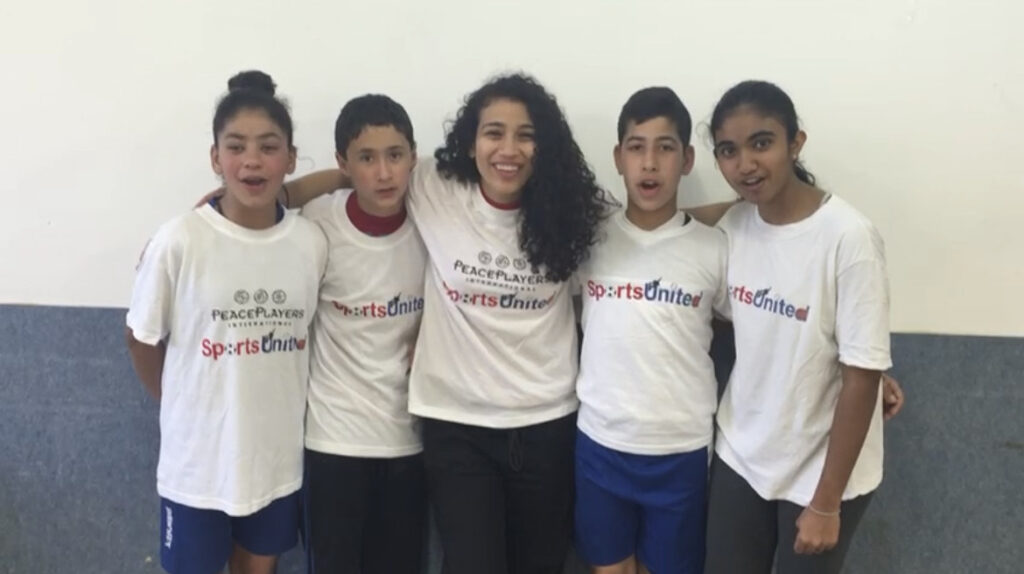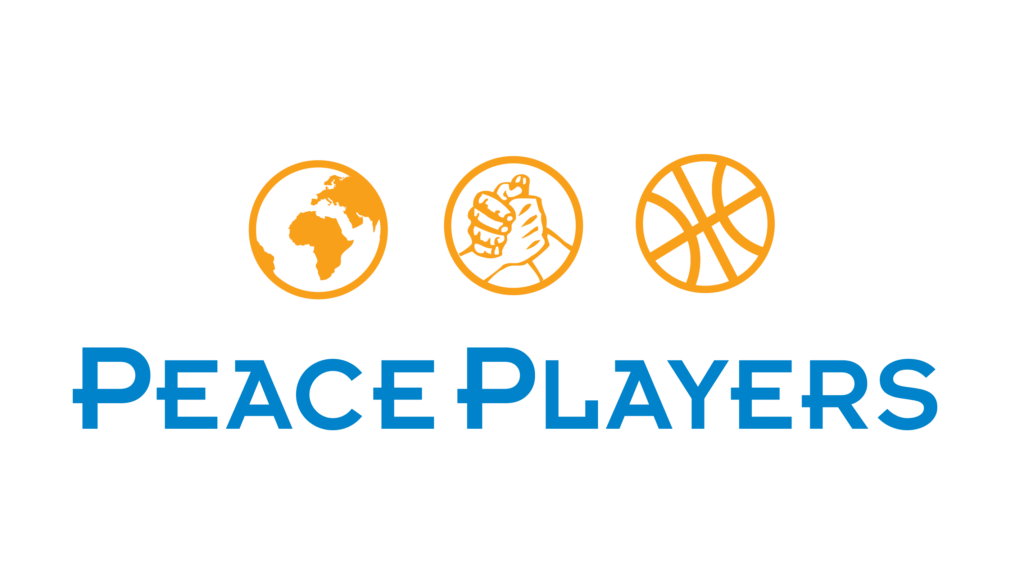Meet Heba El-Hendi, The Leadership Academy Director
May 2nd, 2022
SHARE
Leif Frymire, Marketing and Communications Coordinator, had the pleasure of sitting down with Heba El-Hendi to learn more about her background, and what brought her back to PeacePlayers as The Leadership Academy Director.
Q: First off, can you tell us a little bit about yourself. Where are you from?
I was born in the Emirates but have Palestinian roots and consider myself Palestinian-American. I immigrated to Utah when I was nine years old from the Emirates, and didn’t know any English. That definitely shaped my experience growing up. Most of my formative years were as a minority in Utah, but the experience taught me how to appreciate my differences and also want to learn more about my background. And so, when I got the chance to leave Utah, I definitely took it because I knew that the world had more to offer. I went to college out of state, which was quite unusual for most people graduating from my high school. I went to Emory University in Atlanta, Georgia. And that was just an amazing, amazing experience to meet people from different backgrounds and meet people with similar backgrounds to me and to not necessarily be a minority for once. After I graduated college, I immediately started working internationally. I was teaching English in Morocco and really just loved it but was super overwhelmed, because I was kind of thrown into an educational system that I had no idea about. And I was teaching higher education, so students were my age or older than me. And it was really just an amazing opportunity at the end of the day to grow that confidence, and being in front of a crowd that probably knows more English than I do, to be honest, like, grammatically. So, it was a very humbling experience.

Q: When did you find out or hear about PeacePlayers?
While at college, I was lucky enough to have done two study abroad programs - a semester in Morocco followed by another one in Tel Aviv, Israel. Growing up I had limited exposure to the conflict, much of it came from my family’s experiences and narratives. I wanted the chance to experience the place for what it was through my own lens and first-hand experience and of course see where my family came from. It was during my time at Tel Aviv University that I first learned about PeacePlayers; a volunteer was in one of my classes there and mentioned it, and I honestly just completely forgot about it. When I was trying to figure out what's next after teaching English in Morocco, I still wanted to stay international, and I really wanted to get back to my Palestinian roots and was just trying to think, how can I get there in a meaningful way? There was the volunteer that I mentioned earlier from when I was studying abroad; he had become a PeacePlayers international fellow, and somehow we reached out on Facebook and I found out that there is a fellowship opening. I was super excited because it was exactly up my alley with people-to-people peacebuilding, but I did not have a basketball background whatsoever. I think I was the first Middle East fellow that didn't know anything about basketball.

Q: What did you do after the PeacePlayers fellowship? Where did you go?
I went to the Fletcher School of Law and Diplomacy at Tufts University. I mostly focused on areas experiencing war and conflict and then the immediate effects of that. So migration and refugee influx, working with different vulnerable populations. After I graduated from Tufts, I went to the United Nations High Commissioner for Refugees (UNHCR). I was first based in the middle of nowhere Algeria, working with refugees that have been in refuge for about 40, 45 years in the desert. There was a lot of cultural programming and we were primarily working with youth and women. So you could say I was still working with similar populations to PeacePlayers. And after doing that for about a year, living in tough conditions, I moved to Western Sahara and helped programming from a logistics perspective.
Q: So when PeacePlayers initially reached out to you about this position for the Leadership Academy, what drew you to the program and back to PeacePlayers?
I would say it's twofold. One, I think the program, the position itself sounded incredible. I recognized that it was a need when I was originally at PeacePlayers doing my fellowship. We had participants, lifelong participants. And there is that tapering off, a question around what happens after PeacePlayers. So I got really excited about the fact that we can create a global movement in that sense and provide tangible, actual support for youth that really deserve it, and think that they could do wonderful, wonderful work, especially if they're provided the support and the networking that PeacePlayers could provide. Also, the position is still international, and that's something that I'm really a big fan of; I just can't really imagine doing something that doesn't have that kind of international focus. And it still works with youth and people from conflict. It really just fit with all the things that I professionally wanted to be engaged in. And then the second part is I just think PeacePlayers has such phenomenal staff and people to work with, and I was really ready to be back working with people that like to get things done. There's trust between the employees. There's just such great communication. I really noticed PeacePlayers changing throughout the years after I left; they made a lot of changes that I think were necessary when considering the people to people peacebuilding and conflict resolution fields.
Q: What were some of those things that you saw change in PeacePlayers?
I think recognizing that participants do not come together equally, and that means that we have to meet the participants in different manners and different ways, and that's just based on the structure of the conflict itself. Some other changes I noticed were the importance of using the right terminology; trying to bring those PeacePlayers core values that we talk about internally and seeing how that impacts the organizational structure, which meant having those difficult conversations. Seeing those types of changes from an outside perspective was really encouraging for me and made me want to come back as well.
Q: What do you think this program can offer young people? What can they achieve through this program, through this initiative for themselves, for their communities, whether that’s locally or globally?
It definitely goes in the lines of transformation, right? I think that a big thing for PeacePlayers is inside-outside transformation. We do that through programming, and having that continuation in adult life is really important, whether it's through the vehicle of sport or not. And showing that we value the relationship that we've developed with the participants on an individual level. From a community level, I really think developing and helping the sites create their local programming and their local chapters of the Leadership Academy is such a wonderful idea. As not everyone will have the opportunity to access the global network, establishing local chapters is very important. One of the best places to create is through the community. It's a lot more tangible in that you can see things progressing and changing past the individual level. It could be from providing academic support to helping someone get their license so they can get a job. The variety of needs is there and it's my job to see how I can help support the local staff in finding ways to support their youth. It's a really tall order and we can cover so much in that capacity.
Q: Do you have any advice for participants as they make that transition into young adulthood that you can draw from your own experiences or what you’ve learned over the past few years?
The biggest advice is, there is a lot of uncertainty in your future, and uncertainty is okay. Something that I've learned through transitioning through a lot of different parts of the world, different roles or whatever it is that uncertainty is okay, and leaning into it is a much healthier way instead of letting it overpower and cause angst and worry. I think knowing that some things are going to work out and some things are not, and that's okay. As long as a person is trying to grow and find more about themselves through these changes, it is the best that we can do for ourselves.
Q: What excites you about the future of peaceplayers?
The participants themselves, seeing on the micro level how this kind of programming really will impact people's lives. For me, coming back to PeacePlayers and seeing a few members of the Leadership Academy youth steering committee who I worked with as a fellow, just seeing them being able to go to a university that otherwise I don't know how [they] would have been able to access. That, to me, is incredible. That just excites me enormously and motivates me to find ways to keep supporting these amazing youth. I feel like they're long overdue and deserving of these types of opportunities. I think that's probably one of the things that keeps me motivated and excited for this position.





